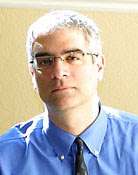Genes, bad parenting keys to violence
From correspondents in London April 10, 2008 04:00am WHETHER a criminal teenager turns into a violent adult or grows out of crime, may be related to how low his ears are set or the types of food he was given as a child. International research shows antisocial behaviour in young adults can be written into their genetic code, and made worse by bad parenting. Indicators that an antisocial child may turn into a life-long violent criminal can be picked up in kindergarten, according to research summarised in this week's New Scientist magazine. Of the 535 males and 502 females born in New Zealand in 1972 and 1973 who were signed up at birth to the University of Dunedin's Multidisciplinary Health and Development Study, those who dabbled in crime as a teenager can be divided into two clear groups, Terrie Moffitt from the Institute of Psychiatry in London said. The more common type took up petty crime in adolescence keen to impress "badass" friends, she sai...

